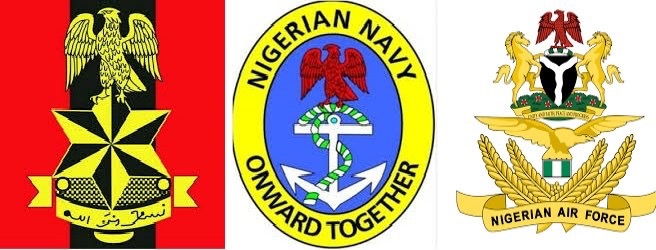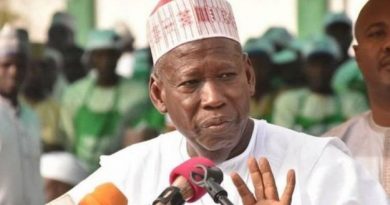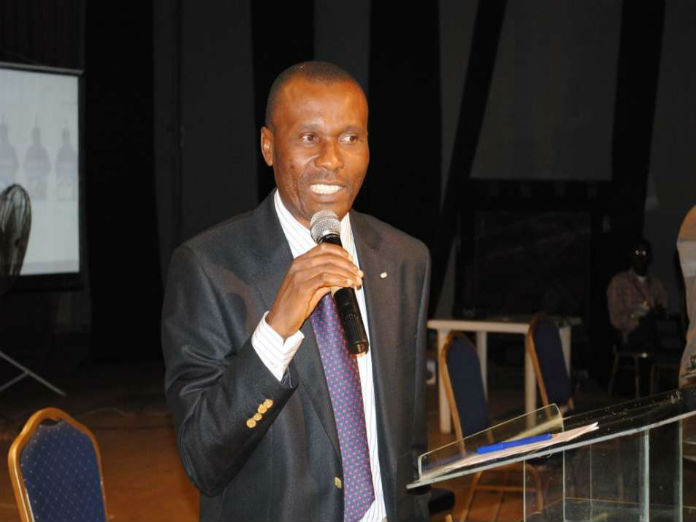That Presidential Reprimand of the Military and Matters Arising
by Chidi Omeje
While briefing the media after the National Security Council meeting at the State House on Thursday, April 21, 2022 the National Security Adviser, Maj Gen Babagana Monguno expressed President Buhari’s dissatisfactions with military for not being able to bring security challenges in the country under control. He also rightfully chastised Governor El Rufai of Kaduna State for his many careless talks and unhelpful grandstanding.
Gen Monguno, as a matter of fact, fielded many questions from the media but what he did not tell them was his own role as the NSA in all of these. Glaring as his incompetence and artful mastery in evading media and public scrutiny in the past seven years of dreadful insecurity across the country are, that is not the crux of this intervention. Let us focus.
One might not be in position to fault the Commander-in-Chief in his decision to lay the entire blame for the intractability of surmounting the security challenges assailing the country on the military, especially as one is not receiving the kind of intel report available to him; however, it is apropos to remind him of few things.
First of all, it is important to understand where we are getting the whole thing wrong to be able to have a full grasp of why insecurity not only persists but degenerates dangerously. The truth of the matter is that our internal security operations mechanism has been bastardized to the point that current security architecture is bound to be ineffective and incapable of producing the kind of result we are yearning for.
That all manner of internal security challenges that task our national security are popping up in various degrees, intensities and complexities across the country should not come to anyone as surprise. It is actually expected; and in fact, no nation in the world today is immune to the reality of its own internal contradictions or emerging security challenges. What makes or marks the difference, however, is how the security system in place is fashioned or implemented to confront any security situation. This to a large extent determines the level to which such security violation can easily be detected, confronted and surmounted or how fast and far reaching such challenge can fester, deteriorate or conflagrate.
Nigeria’s model of internal security operation is such that the Nigerian Police Force is the lead agency in dealing with any security challenge. In other words, the Nigeria Police is the first responders to any internal security violations; and not just responding first but taking charge and ensuring that the security challenge is nipped in the bud through intelligence undertakings. To boost this policing effort, the system created the secret police otherwise known as the State Security Services which will work in aid of the police to uncover and deal with crimes and criminalities that could imperil the state. There is also the Civil Defence which was established to compliment the efforts of the Police.
However, when the security challenge is such that is beyond the capacity of the police to contain, the civil authority, in exercise of its constitutional duties of providing security of lives and property to the citizens, is compelled to invite the military to act in aid of the police to deal with the situation. By this design and process, the Nigerian military is the last line of defence in our internal security operations mechanism. What this means in actual sense is that the military will only be called in when the security challenge is such that is beyond the capacity of the police to deal with.
Such security challenges like insurgency or terrorism which threatens the sovereignty of the state or which its perpetrators deploy combat grade weapons that have the capacity to overwhelm the police, are the kind of challenges that naturally demands military intervention. But that is not what is obtained now.
The police have become so dysfunctional, ineffective and watered down that its core responsibility as the lead agency in dealing with internal security challenges has been abdicated to the military. Almost every crime in the books in Nigeria today is handled by the military. The military are deployed to man elections; they are deployed to chase armed robbers, to stop cultists, to confront kidnappers; they are deployed to quell protests and even to chase street hawkers around! They are currently deployed to 36 out of the 36 states of the federation to do the work they were not in actual sense trained to do.
The military is trained to kill and dominate territorial areas and not to chase around criminals and deviants. Our military is over stretched not with fighting wars with external aggressors or internal insurgents but by the wanton deployment of its troops to do the work which the civil police has failed to do. The indisputable fact is that this unrestrained deployment of our troops to deal with every security violation in the land is rubbing off negatively on their professionalism and opening them up to civilian idiosyncrasies and foibles.
Even more dangerous is the reality that owing to this over-use, our Armed Forces have hardly had time to conduct basic joint trainings that would have strengthened the synergy between and among the tri-service institution. In fact, the last time the Nigerian Armed Forces conducted Joint Operations Exercises (JOPEX) was in 2010 when they organized the Operation Ologun Meta around the Okitipupa axis in Ondo state and adjoining areas.
How then are we expecting to see a very efficient military that will win wars for us when we deny them of such important trainings and exercises by always overstretching them with ceaseless internal security operations? How come that in today’s Nigeria, whenever there is any report of security challenge, our instinctive gaze is at the military? Is the military trained to take care of our everyday security infractions? What about the civil police? What about the intelligence community?
The follow-up questions to ask are, what are we doing with our civil police? How much are they contributing in dealing with the multiple internal security challenges assailing our country today? What is stopping the office of the National Security Adviser from taking charge and spearheading a through reorganization of our internal security mechanism in order to restore order in the functions and expectations of each of the security, intelligence and response agencies? Why can’t we try out the state police option to see if it will be more effective dealing with the hydra-headed contemporary security challenges? Why must our police be rendered impotent and grossly ineffective?
Why must about 50% of Nigerian Police personnel be deployed to secure individuals and private concerns leaving our spaces ungoverned and under-policed? Why are our Mobile Police personnel deployed to carry handbags for politicians, their wives and concubines and even celebrities while our communities, streets and farm lands are left to the whimsies of crimes and criminalities? And by the way, what did we eventually do with the SARS officers that were recently disbanded? Were they simply disarmed and deployed into various police stations or where are they exactly?
What about the Civil Defence Corps? What exactly are they contributing in all of these multiple internal security challenges confronting us? Has anybody ever seen personnel of Civil Defence at work after 5 pm in the evening? Of what use are they really?
More questions: why can’t we make better use of these security elements by deploying them to areas where the military are conducting operations so that they can at least provide security in liberated communities while the troops advance further? Why can’t we retrain and equip them so that they can become intelligence assets, knowing that intelligence holds the key to most of these security challenges? Why can’t we think outside the box and be bold enough to tinker with and we fix the obviously weak and ineffective internal security operations mechanism that has not provided needed desired results?
Chidi Omeje is the Editor-in-Chief, Security Digest
Image Credit: The Sun NIgeria




